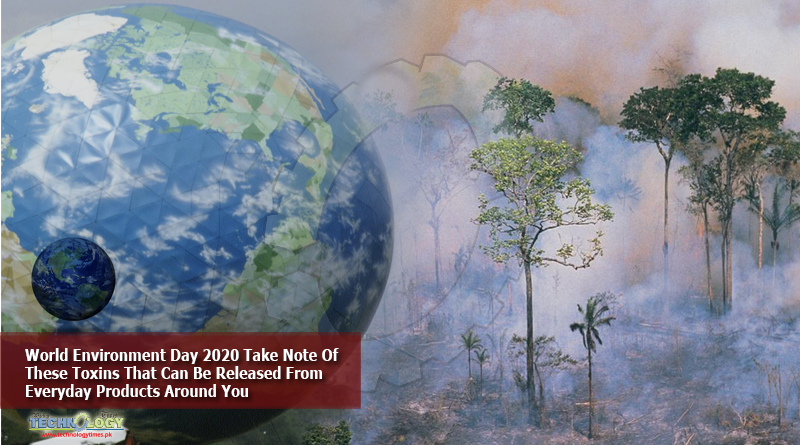World Environment Day 2020: Minimise use of plastic and use only those cosmetics that are made with natural ingredients. These are some common everyday products that may contain toxins that can harm your health.

World Environment Day: Toxins and chemicals are around us. The food we consume, the water we drink and every other product that we use daily all contain chemicals and adulterants that have the ability to pose serious risks to our health. On the occasion of World Environment Day on June 5, we are going to talk about common everyday products which may emit chemicals harmful for health. From carpets to furniture, common household cleaners, mattresses and dust all contain pollutants that could be toxic.
Environmental Toxins
Our modern diets, processed foods and environmental toxins are creating a lot of stress in the body, all of which is messing with our hormones. Watch video to know more.
1. Radon
Radon is a colourless and odourless gas which is radioactive in nature. It forms from the natural decay of uranium or thorium, which is found in nearly all soils. The gas can move up through the ground into your home through cracks in floors and walls. According to American Cancer Society, long-term exposure to radon can increase risk of lung cancer.
2. Formaldehyde
This is a flammable chemical which is commonly used in building materials and manufacture of household products. It is present in pressed-wood products like plywood, particleboard, disinfectants, glue and cigarette smoke. According to National Cancer Institute, when formaldehyde is present in air at levels exceeding 0.1 ppm, some people can experience watery eyes or burning sensation in eyes, nose and throat. Coughing, wheezing, nausea and skin irritation are other symptoms that one may experience.
3. Benzene
Benzene is commonly found in crude oil. It is a colourless liquid which evaporates quickly. It is present in pesticides, synthetic fibres, plastics, inks, oils, detergents, tobacco smoke and car exhaust. Long-term exposure to benzene can result in harmful effects on the bone marrow. It can also result in a decrease in red blood cells and lead to anaemia.
4. Chemicals in plastic
Plastic and plastic products contain chemicals that can affect the endocrine system. Bisphenol A (BPA), pesticides and phthalates are among the most dangerous endocrine disruptors in plastic products. Plastic products contain both natural and man-made toxins which mimic oestrogen hormone World Environment Day Toxins. It could be especially harmful for pregnant and breastfeeding women. Even low exposure to these toxins can increase risk of obesity, infertility, low testosterone levels and sperm production.
One can get exposed to these harmful chemicals by some plastic bottles, containers, toys, cosmetics, detergents, bottle tops, water supply pipes, commercially grown foods and cosmetics.
Cut down on use of plastic bottles
Photo Credit: iStock
It is thus important to minimise use of plastic in all forms. It is especially important to avoid microwaving food in plastic containers. Buy only BPA-free bottles and toys. Use cosmetics that are made from natural ingredients only.
Also read: Covid-19: Effective Tips To Clean And Disinfect Your House Properly
Disclaimer: This content including advice provides generic information only. It is in no way a substitute for qualified medical opinion. Always consult a specialist or your own doctor for more information. NDTV does not claim responsibility for this information.COMMENT
DoctorNDTV is the one stop site for all your health needs providing the most credible health information, health news and tips with expert advice on healthy living, diet plans, informative videos etc. You can get the most relevant and accurate info you need about health problems like diabetes, cancer, pregnancy, HIV and AIDS, weight loss and many other lifestyle diseases. We have a panel of over 350 experts who help us develop content by giving their valuable inputs and bringing to us the latest in the world of healthcare.
Originally Publish at: https://doctor.ndtv.com/
